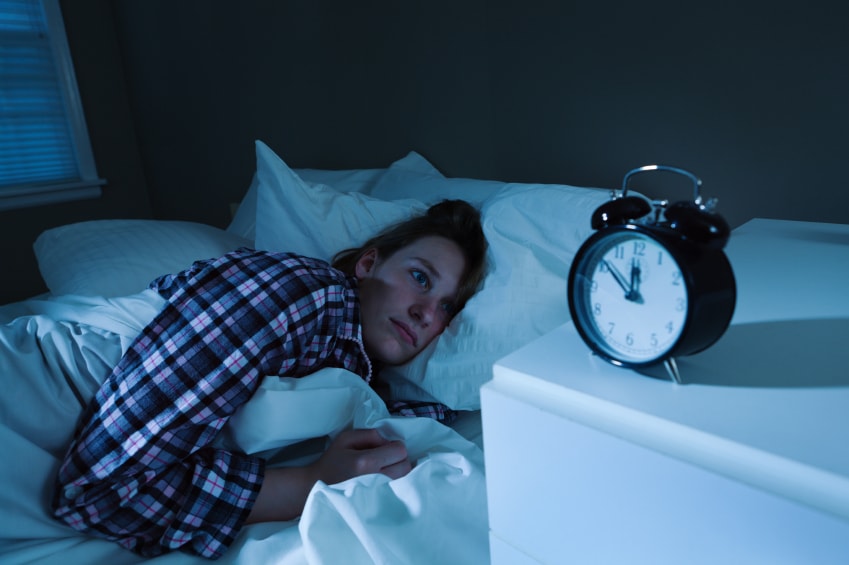
I recently saw a patient who came to me in tears. No, she hadn?t been diagnosed with a deadly disease. She wasn?t crying about the painful divorce she had been through, or about her business that had failed. She was crying because of exhaustion. She simply was not sleeping well. (More later about how we helped her.) One sleepless night may not be too alarming. But one night can lead to two, and three and more. And that can lead to disaster.
Imagine this scenario? You’re going through midlife. Life is stressful. You have restless nights, sometimes spending hours tossing and turning. You go to your primary care doctor, and he or she gives you a sleeping pill. It works at first. But the next day, you don’t feel like yourself. The next night, you still can?t fall asleep. So you take another pill. Same thing the next night, and the night after. You start to worry that you might be becoming addicted to a medication that isn?t even helping. You?re wondering if there?s a more natural way. Now what?
Well, you start looking for answers. But you can’t always get them from your primary care doctor. See, doctors are trained to go the pharmaceutical route to solve problems like insomnia. And the big pharmaceutical companies aren?t going to help you solve insomnia in a more natural way?they?re in business to sell drugs, not natural solutions. That?s why I started doing my own investigation into natural solutions for insomnia. Here?s what I found out about the causes of insomnia.
WHAT?S MAKING YOU SLEEPLESS?
Too much light can cause insomnia. Even the light from an alarm clock can be read by your skin and interpreted by your body as sunlight, and it will tell our body that it’s time to get up.
Noise from a snoring spouse, traffic, even a ticking alarm clock can cause insomnia.
Stress is a common cause of insomnia. When you’re stressed, you produce an abnormal amount of cortisol, a hormone produced by the adrenal gland. Cortisol levels are normally low during the night, but when they peak during stressful periods, the result is sleeplessness.
Your internal clock can get off-kilter. Mother nature wants us to be productive in the daytime, and sleep at night. If you go to bed late and wake up late, you can throw your internal clock off schedule.
Fluctuating hormone levels can keep you awake. As estrogen, testosterone and cortisol levels drop, the body compensates by raising adrenaline levels.
Infections can cause insomnia. If you have a urinary tract infection, you?ll be visiting the bathroom frequently during the night. Other infections such as Lyme disease can trigger sleeplessness, as can simple allergies.
Stomach problems, from minor aches to serious concerns such as celiac disease, can inflame your stomach, upset your enzyme balance, and keep you awake.
Sleeplessness can even be due to a lack of nutrients. If you don?t eat enough fruits and vegetables, or you eat produce grown in poor soil conditions, you might not be getting the vitamins and nutrients you need. This may lead to too many neurotransmitters(chemicals that transmit signals) in the brain. Some kinds of neurotransmitters are known to agitate the brain.
Environmental causes such as electromagnetic ?smog?–emissions such as radio waves from cell phone towers–could be a contributing factor.
Probably my most concerning finding: toxins can cause insomnia. For instance, mercury, the kind found in certain fish, prevents adrenaline and noradrenaline (a stress hormone) from leaving your system at night. It?s hard to sleep when adrenaline is rushing through your system! Toxins turned out to be the case with the patient I mentioned earlier. I started detoxification treatment, and she is on her way to normal sleep–and getting her life back.
SOME TIPS ON GETTING A GOOD NIGHT?S SLEEP.
Make sure that your bedroom is totally dark and completely quiet.
Get checked for metal toxicity. Detoxify if necessary. Use a seafood selector tool, available online, to determine which fish are safer to eat.
Get the right vitamins and micronutrients. Stay away from multi-vitamins, because pharmaceutical companies can?t know which vitamins and micronutrients you are lacking. Consult with a professional to determine what you need.
Have your hormones and neurotransmitters checked by a professional, and have them adjusted as necessary.
Manage stress. Use stress reduction techniques like meditation, and Emotional Freedom Techniques (a form of therapy that draws on alternative medicine techniques such as tapping on specific pressure points).
Shield yourself from electromagnetic smog. Turn off Wi-Fi and computers. Use foil under your mattress. Consider getting a special protective canopy (available online) to shield yourself from cell phone towers.
Stick with a ?Paleolithic diet?: meat, poultry, fish, fresh vegetables and fruits. Go organic. Eat grass-fed beef. Stay away from wheat and dairy products.
Have enough fun!
For more tips on managing insomnia, go to: http://www.doctorkalitenko.com/insomnia For more on detoxifying, go to: http://www.doctorkalitenko.com/detoxification-mercury-lead-toxicity For more on neurotransmitter balancing, go to: http://www.doctorkalitenko.com/neurotransmitter-balancing

